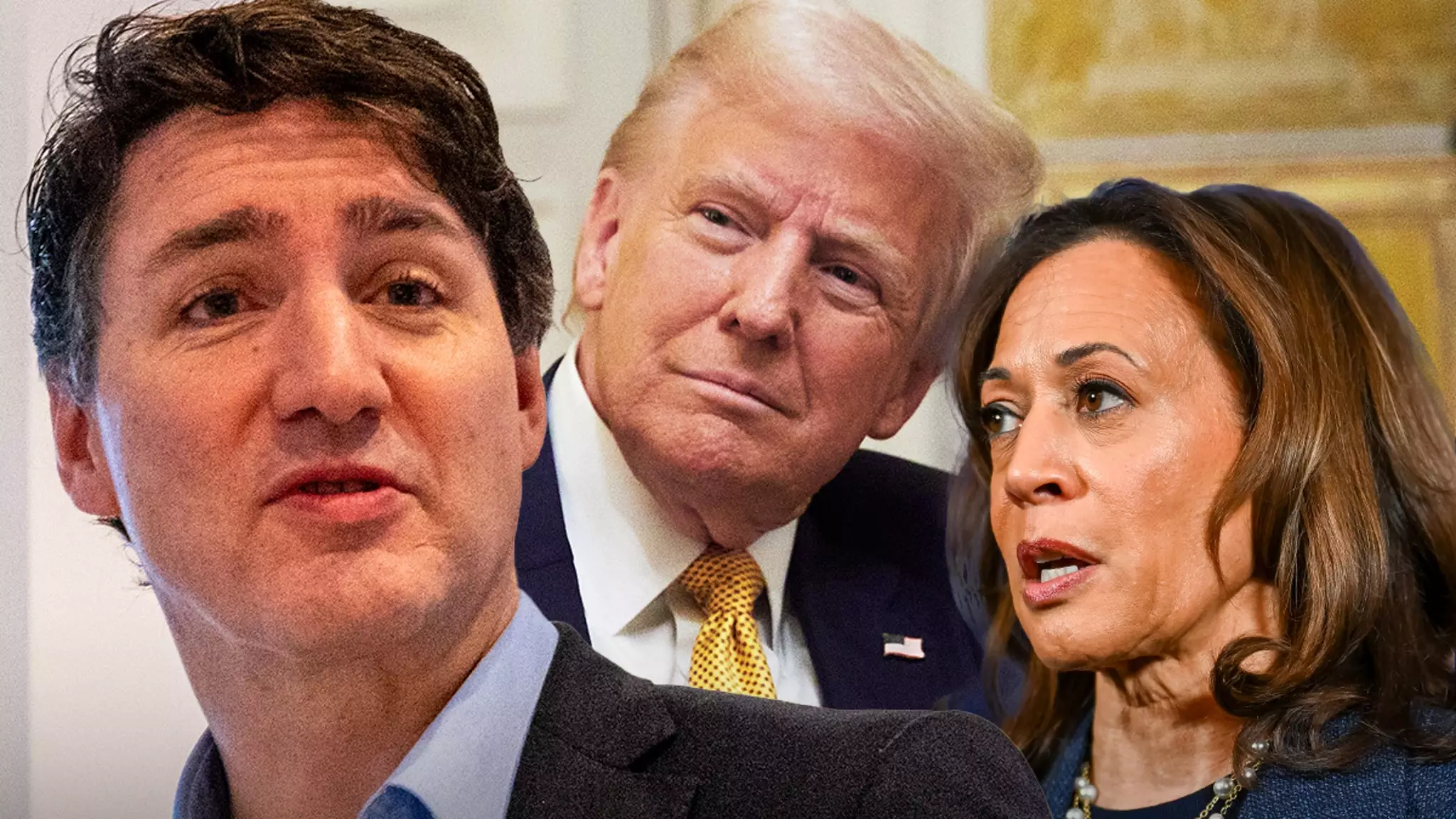Prime Minister Justin Trudeau, known for his outspoken feminist agenda, recently took a bold stance critiquing the United States’ leadership under Donald Trump, whom he implied was detrimental to the advancement of women’s rights. Speaking at an event for the Equal Voice Foundation, dedicated to increasing female representation in politics, Trudeau expressed his disappointment over the U.S. electorate’s decision, asserting that the choice of Trump over Kamala Harris represented a regression in the fight for gender equality. This public critique not only highlights the stark differences in approach towards women’s issues between Canadian and American leadership but also serves to underline the complexities of international political relationships.
Trudeau’s characterization of himself as a feminist poses significant questions about the role of public figures in advocating for women’s rights. While he has presented himself as a champion of gender equality, the effectiveness of his policies and rhetoric must be assessed critically. The Prime Minister’s assertion that Harris would have furthered the feminist cause more effectively than Trump suggests a belief in the compatibility of feminism with political power. However, it raises a fundamental dilemma: does the label of “feminist” automatically confer competence in advancing women’s rights, or should it be measured against tangible outcomes? Critics argue that simply adopting a feminist label does not equate to effective advocacy, and this moment presents a necessary opportunity for deeper examination of political actions versus rhetoric.
Trudeau’s comments suggest he is in denial about the complexities of gender dynamics in voting behavior. He emphasized that Trump’s presidency marked a critical setback for women’s rights, yet neglected to recognize that a notable percentage of women actively supported Trump, with 45% of the female electorate casting their votes for him. This statistic complicates the narrative that men in power inherently hinder women’s progress, as it indicates that women’s preferences are multifaceted and influenced by a variety of factors beyond gender. This point should not be overlooked in discussions of feminist movements, as understanding the diverse perspectives within the female electorate can enhance political strategies aimed at inclusivity and representation.
In addressing Trump’s election, Trudeau inadvertently sheds light on the fraught nature of U.S.-Canada relations, particularly regarding personal dynamics between leaders. Trudeau’s remarks can be viewed as a strategic political move, a way to distance himself from Trump’s controversial presidency while reinforcing his own progressive credentials. However, the effectiveness of such public dissent is questionable, particularly when political leaders must navigate the delicate balance of advocacy and diplomacy. This relationship intricacy raises further concerns about whether public criticisms genuinely reflect the sentiment of constituents or are merely performative gestures meant to attract political capital.
Trudeau’s critique of Trump and his rhetoric surrounding feminism illuminate essential dialogues on the state of women’s rights today. While his intentions may align with the progressive ideals of gender equality, they also highlight the limitations of political discourse in fostering real change. Advocacy must evolve beyond surface-level gestures or critiques in order to effectuate meaningful progress. For the journey toward gender equality to advance, a more inclusive, nuanced understanding of women’s roles, preferences, and political affiliations is essential in shaping future policies and leadership choices. The responsibility lies with all political figures, including Trudeau, to ensure their actions reflect substantive commitments to advancing women’s rights rather than merely leveraging the feminist label for political gain.

